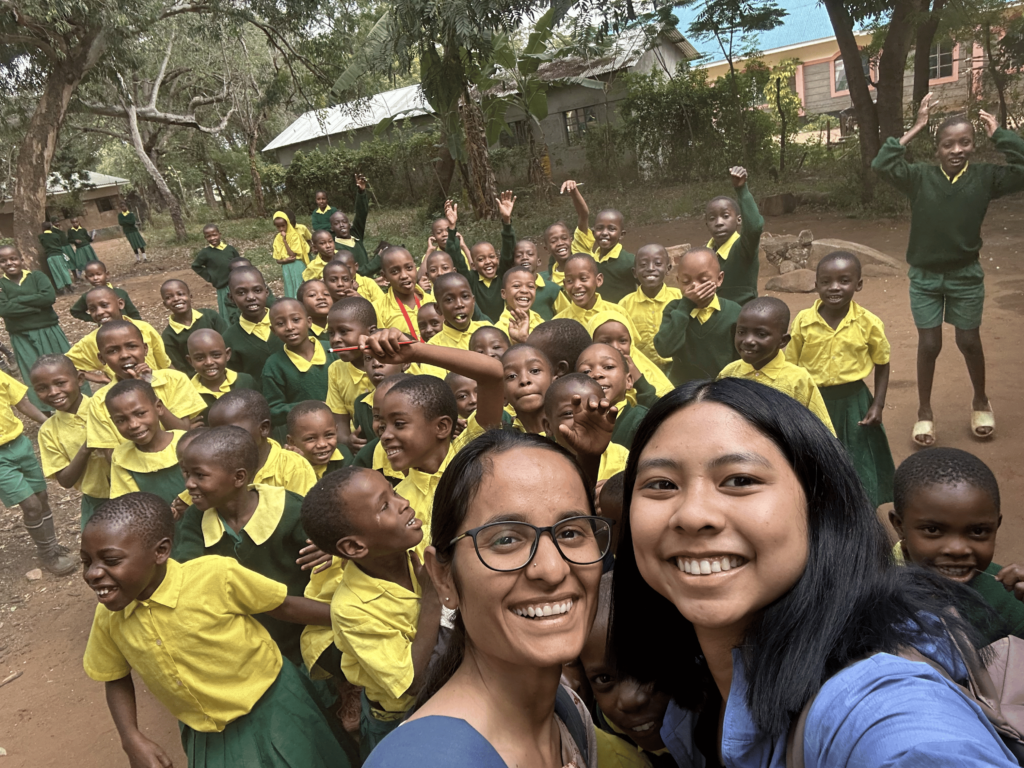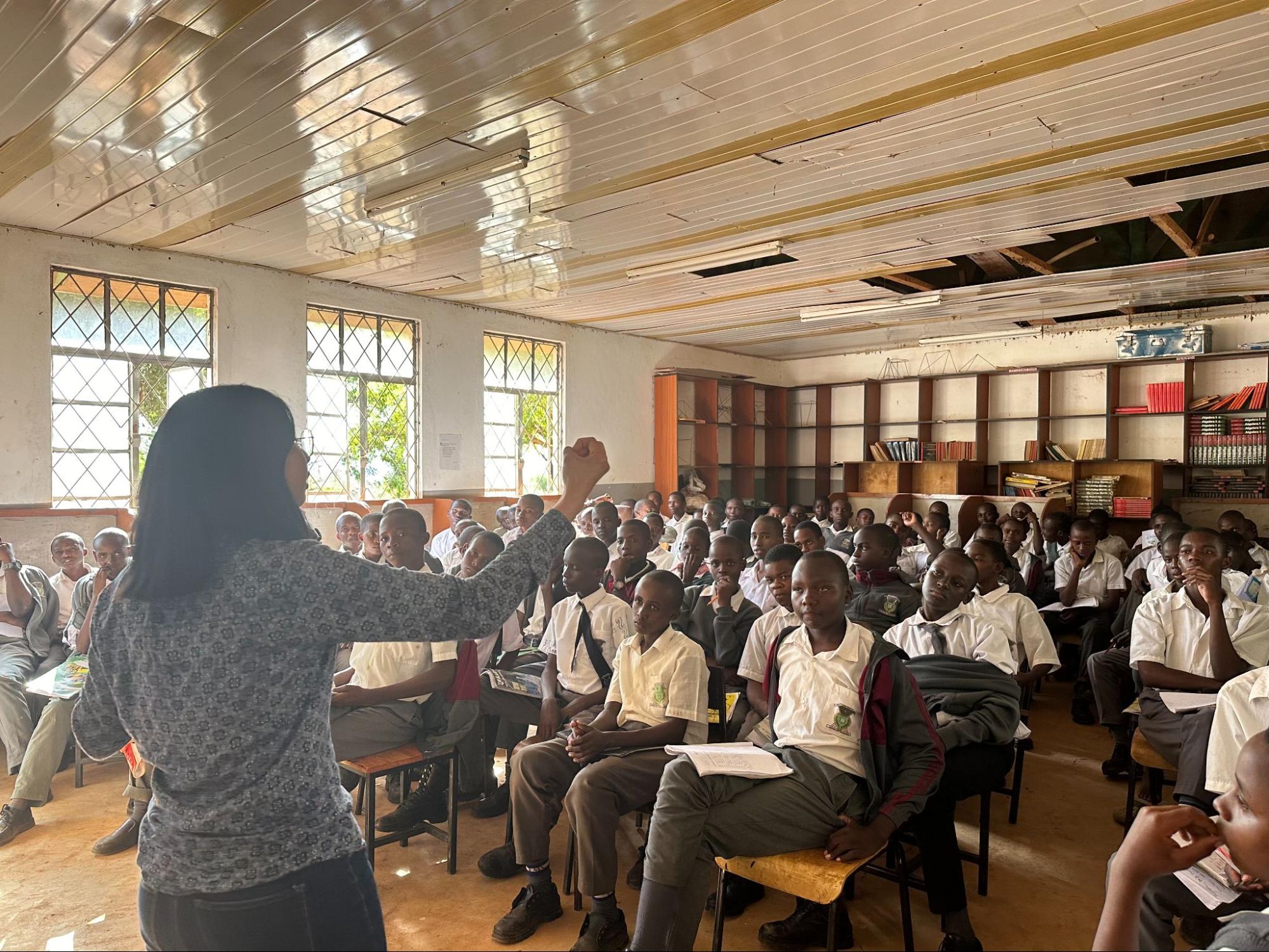By Sarah Bernardo

Each year, UC Berkeley bestows its Distinguished Teaching Award, the campus’ highest honor for teaching. This year, Dr. Khalid Kadir is one of five esteemed recipients. Since joining Berkeley in 2010, Professor Kadir has built a reputation for being brilliant, personable, and passionate, gaining recognition from both his students and colleagues for his accomplishments and his service to others.
Professor Kadir currently teaches courses in Global Poverty & Practice (GPP), Political Economy, and the College of Engineering. The Blum Center caught up with Professor Kadir to hear what drives him, and learn more about his experience teaching at Berkeley.
How would you describe your teaching style?
At the root of it, it’s about building a bridge between theory and people’s lived realities. That’s a formal way of saying that I try to make things relatable, relevant, and meaningful to my students. That’s at the core of my teaching.
I am also excited about what I do and I have a lot of energy. Even when I walk into a class tired, I get pumped up as I dive into the material. The ideas excite me, and working through the ideas with my students gives me energy. I try to keep my classes interactive. I’m not interested in listening to myself talk for an hour; I’d rather have a conversation. When I feel that I’m grinding too hard on complex topics, I pull back and ask the students a really simple question just to get them talking. For example, “What’s your favorite color?” Then, I gradually move towards the content I’m trying to cover.
What makes your interaction with students unique?
Sometimes professors operate in an austere, removed, inaccessible way when they talk to students. I don’t have the capacity to consciously perform when I teach, and as a result I think that students in my classes relate to me, and think “Hey, that’s someone I can actually talk to!” There was a student in one of my engineering classes who came into office hours and asked “Did you read my assignment?” I told him yes. He then asked, “Did you write those comments?” I told him “Yes, I did.” Astounded, he said “You’re the first professor who’s ever done that.” I can’t deny that I was a little shocked to hear that. It was a large course, and he was amazed that I took an interest in each student’s assignment. After that, he came to my office hours every week and we developed a great relationship. He is a deeply respectful person and a powerful thinker, and it was great to have the opportunity to get to know him.
How does your background as an engineer impact your teaching in Global Poverty & Practice?
Like many engineers, I was always interested in going out into the world and applying what I learned, and the GPP program is very much oriented that way. The program doesn’t just include theory classes, it also has a Practice Experience where students engage and then reflect upon how ideas and theories manifest in the real world. This allows students to understand those ideas better and iterate upon them. GPP is a place where I can take social science ideas and work with students to apply them to the world.
I’m an engineer who studied social sciences. Often students are looking for hard engineering skills – they want to know how to use this software or do that quantitative method or produce this other kind of product. I’m trained with those skills, but I’ve come to believe that, when you are working with marginalized people, there are a different set of skills that are actually far more important to the success and failure of projects than “hard” engineering skills. Deep thinking and humility is required. It is important to me that students understand that their ability to engage humbly and effectively with communities is one of the most important skills. I think that resonates with students.
Do you bring concepts from your Global Poverty & Practice courses into your Engineering classes?
One challenge I face is that concepts taught in my GPP courses are not always viewed as valid or relevant in technical engineering courses. Nonetheless, I try to squeeze them in every moment I can. For example, in the middle of a lecture about water chemistry, I will try to bring in the politics of measurement in an attempt to really contextualize things for students. It’s great if we can talk about what chemicals are in the water and in what quantity, but it’s important to also talk about who chooses what to measure, when, and where, and who decides what counts as dangerous or not, and for whom. These are absolutely critical questions, and learning to ask those questions is, for me, a crucial part of my students’ education.
What do you value most about being a professor?
At the root of it, I value the people, the students. I value their willingness to be vulnerable and learn. I value getting to be a part of their difficult journey because I get to see their intellectual and personal progression. Being invited to join the journey that students are on is very rewarding. In the GPP program, the kind of relationships that we – the faculty and staff – build with our students are incredible.
I also value the ways teaching holds me accountable. If you’re real with your students and you’re open with them, they’re going to push you. I can understand why some professors might not want this sort of pushback, but I’m open to it, even though I can’t deny that at times it is hard. As much as we may try to push ourselves, it helps to have other people push us too. I really value my students in that sense – they push me – and I appreciate them for that.
How does it feel to receive the Distinguished Teaching Award?
I just want to say that it takes a crew or perhaps a village. GPP is unique in that we bring the curricular and co-curricular together. We are deeply integrated throughout the program in a way that I have not seen anywhere else on this campus. We acknowledge that learning doesn’t just happen in these single-semester boxes inside the classroom, but that it’s a complex process that happens between classes, over breaks, through summers, through office hours, and in peer advising.
GPP and the American Cultures Engaged Scholarship program (ACES) are key programs that I’ve been a part of, and both these programs are pushing against the tide of the factory model of schooling. I worry about the future disappearance of programs like these that reward, encourage, and enable great teaching. The invitation to teach in these programs is what has led to this award, and I am grateful to those who share these spaces with me. Overall, I’m excited about this award. This is a space where teaching gets recognized, and I would like to see good teaching recognized and in fact structurally prioritized across our campus.
Professor Kadir and the other award recipients will be honored at a public ceremony on April 19, 2017 in Sibley Auditorium at 5:00 pm. In addition to the ceremony, Professor Kadir will receive a cash award from the campus, recognition by the Academic Senate, and permanent indication as a Distinguished Teacher in the UC Berkeley catalogue.




